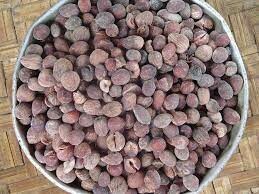The United Nations Food and Agriculture Organization (FAO) in partnership with the Lakes State ministry of trade and industry conducted a one-day workshop for honey and shea butter producers and customers on quality production.
The workshop, which took place on Tuesday in Rumbek, brought together about 50 honey and shea butter producers and buyers.
Speaking to Radio Tamazuj during the workshop, the deputy head of FAO’s field office in Rumbek, Marco Makur, said the importance of the workshop was to link producers and the business community in the region and train producers on value addition.
“In this workshop, we have invited business groups based in Juba to come to Rumbek and these groups are invited to come here to interact with our beneficiaries,” he said.
He said the workshop was meant to expose producers to potential markets and directly link to the business community.
“Currently, the honey that is produced within Lakes State, especially in Wulu county is purely organic natural products which have no additives. So, we term it as the best honey product in South Sudan and that’s why we want it to reach the East Africa market,” Makur added.
Makur stated that the project would also to improve food security and make farmers self-reliant and their businesses sustainable.
“As FAO we want to make sure that food security is improved so that all the households in the community can feed their families and also use the surplus to do business. And that’s why we want to link this group although the time frame is only six months, we are sure that we can leave our community such that they can be able to keep on going to sustain their lives and improve the food security in their household levels,” he added.
FAO trade and marketing team leader Hannington Sipaduka said FOA is working with 600 shea nut collectors and 400 beekeepers.
He said the main challenge the farmers face was access to markets but the workshop has bridged the gap by bringing the farmers and the business community together.
“When the buyers are there, we put up the standard, we put up the skills. We put up the processing technology so that the buyers get quality products from the source of origin,” said Sipaduka.
He explained that another challenge facing the farmers is the lack of standardized market prices since the market for honey and shea butter has largely remained informal.




